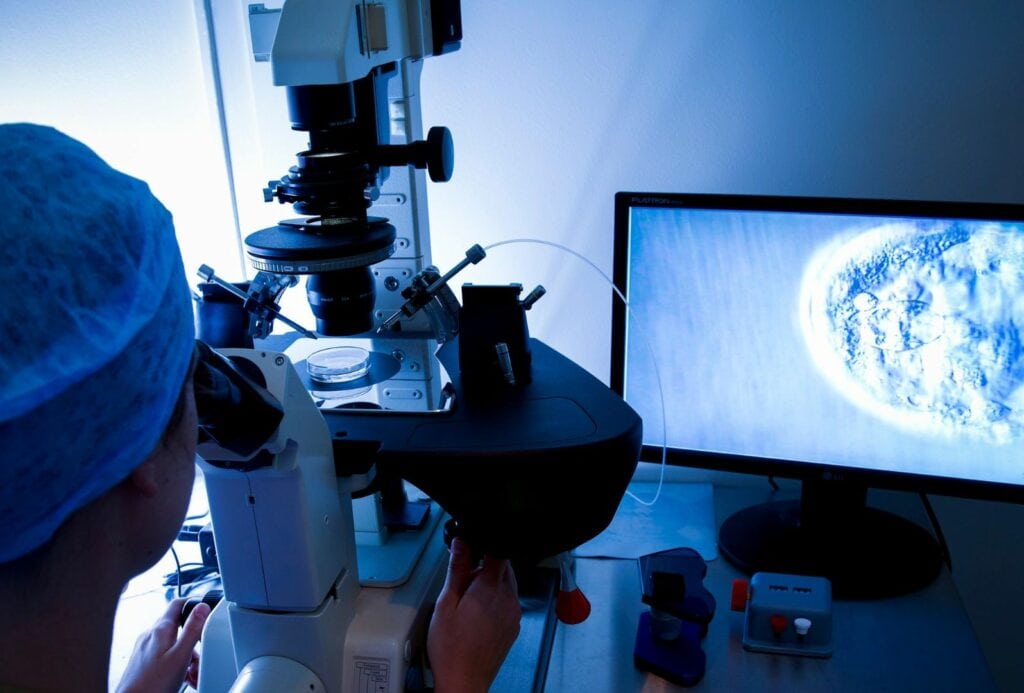What is In Vitro Fertilization?
In vitro fertilization (IVF) is a fertility treatment that has helped millions of couples worldwide conceive and start families. It involves a complex process of fertilizing eggs outside the body and transferring them to the uterus. While IVF has become increasingly common, it is vital to understand the science behind it to make informed decisions about fertility treatments.
Understanding the Basics of IVF Fertility Treatments
IVF is a fertility treatment that involves fertilizing eggs outside the body and transferring them to the uterus. It is used when other fertility treatments have failed, or underlying medical conditions make it difficult to conceive naturally. The process involves several steps, including hormone therapy to stimulate egg production, retrieval, fertilization, and embryo transfer.
Not everyone is a candidate for IVF, and it is essential to consult with a fertility specialist to determine if it is the right option for you. Factors such as age, medical history, and overall health can all impact the success of IVF.
The Role of Hormones in IVF Fertility Treatments
There are several types of hormones used in hormone therapy for IVF fertility. These include follicle-stimulating hormone (FSH), luteinizing hormone (LH), human chorionic gonadotropin (hCG), and gonadotropin-releasing hormone (GnRH). FSH and LH are used to stimulate the ovaries to produce multiple eggs. hCG is used to trigger ovulation, which is necessary for egg retrieval. GnRH is used to prevent premature ovulation.
Hormone therapy is typically administered over several weeks leading up to egg retrieval. Your fertility specialist should carefully monitor the timing and dosage of the medications to ensure that the ovaries are responding appropriately and that ovulation occurs at the optimal time for egg retrieval.
The Process of Egg Retrieval in IVF Fertility Treatments
Egg retrieval is a critical step in the IVF process, as it involves removing mature eggs from the ovaries for fertilization. The procedure typically involves using ultrasound guidance to locate the follicles containing mature eggs, then using a needle to extract them.
While egg retrieval is generally safe, it can have risks such as bleeding, infection, and damage to surrounding organs. Timing is also important in egg retrieval, as eggs must be retrieved at the right time to maximize their chances of fertilization.

The Importance of Sperm Quality in IVF Fertility Treatments
Sperm quality is crucial in IVF, as healthy sperm are necessary for successful fertilization. Factors such as age, lifestyle habits, and underlying medical conditions can all impact sperm quality.
Techniques such as intracytoplasmic sperm injection (ICSI) may be used to improve sperm quality and increase the chances of fertilization. ICSI involves injecting a single sperm directly into an egg, bypassing any potential issues with sperm motility or morphology.
The ICSI procedure involves several steps. First, the eggs are retrieved from the woman's ovaries using ultrasound-guided aspiration. The eggs are then placed in a culture dish and prepared for injection.
Next, a single sperm is selected and immobilized using a microneedle. The needle is then used to inject the sperm directly into the egg's cytoplasm. After injection, the eggs are monitored for signs of fertilization.
The Role of Embryo Development in IVF Fertility Treatments
Embryo development is critical to IVF, as healthy embryos are necessary for a successful pregnancy. Following fertilization, the embryo undergoes a series of cell divisions, progressing from two to four cells. By the fifth or sixth day, the embryo reaches the blastocyst stage, marking the optimal time for transfer into the uterus.
Advancements in IVF technology have led to improved patient success rates and outcomes. For example, preimplantation genetic testing (PGT) can help identify congenital abnormalities in embryos before they are transferred into the uterus.
Other possibilities for improving embryo development and implantation include using artificial intelligence (AI) to analyze embryo images and predict which embryos will most likely result in successful pregnancies.
The Emotional and Psychological Impact of IVF Fertility Treatments
IVF can have a significant emotional and psychological impact on patients and their partners. Common challenges include stress, anxiety, and depression. Coping strategies such as therapy or support groups can help manage these challenges.
IVF Fertility Treatments
Research and development in IVF technology continue to advance, with potential innovations such as artificial intelligence and gene editing on the horizon.
IVF fertility treatments have helped millions of couples worldwide conceive and start families. Understanding the science behind IVF is crucial for making informed decisions about fertility treatments.
- Protecting Your Health: Choosing A Sperm Bank Over Natural Insemination
- Hatching a Plan: Learning The Basics About Assisted Hatching in IVF
- Navigating GYN Surgery Before Artificial Insemination
- PGT Testing and Its Role in IVF Treatment
- The Ultimate Guide To Where You Can Donate Sperm In All 50 States

